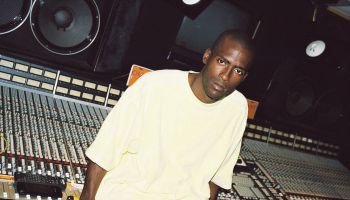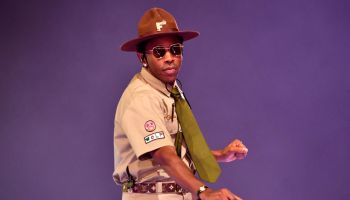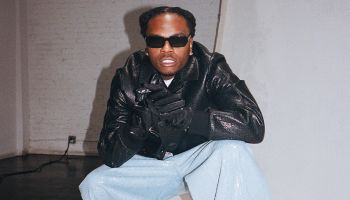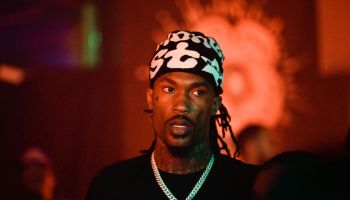With a grand jury decision on whether to indict Officer Darren Wilson in the killing of Michael Brown Jr. on the horizon, Ferguson’s mayor is telling local media to “prepare for the worst.”
The days following the killing of Brown saw police brutality, tear gas, rubber bullets, vandalism and unlawful arrests, but recent protests have calmed drastically. But Ferguson Mayor James Knowles is telling local reporters to prepare for the demonstrations sure to come when the decision is passed down.
A group of community members called the Don’t Shoot Coalition has asked for a heads-up before the decision to prevent Ferguson from boiling over with the tension the mayor is anticipating. This week they released “19 Rules Of Engagement” that, according to CNN, touch on major points of contention between protesters and police.
Those rules include preserving human life, urging police not to use rubber bullets and tear gas, and a 48-hour notice before the grand jury decision is announced:
To read the “Rules Of Engagement” in its entirety, click here.
It is unclear, however, if city officials will comply with the group’s requests.
[Knowles] and his administration didn’t respond to CNN’s inquiries about whether city officials would agree to the coalition’s requests. Ferguson police also did not respond to CNN’s questions about what that department thinks of the “rules,” but St. Louis County police said their department “endorses the statement from the Don’t Shoot Coalition regarding the sanctity and preservation of human life. To that end, and in the spirit of building communications, members of the Unified Command have met with the coalition to define common goals.”
Some of the coalition’s “rules” ask that police provide information that makes clear law enforcement’s chain of command, who is making what decisions and why, and assurances that neither police nor the government will interfere with the flow of information. That means, according to the “rules,” there will be no unwarranted wiretapping or attempts to interfere with internet and cellular access. The rules ask the police not to use rubber bullets, armored vehicles, rifles and tear gas.
The organization also has written stipulations about how it wants police to present themselves, including a request that officers wear attire “minimally required for their safety” and that “specialized riot gear will be avoided except as a last resort.”
Aside from the organization’s request, Knowles has not specified what plan law enforcement has in place following the grand jury’s verdict.
“It’s not going to be about lining up a fixed line of law enforcement officers somewhere, it’s going to be about being prepared, being reactive, being mobile, being able to respond to wherever an issue breaks out,” the mayor said.
Knowles also expects there’s going to be unrest outside of Ferguson.
“It’s not going to be about Ferguson,” he said. “The threats that are out there are threats across the region. Our expectation is that demonstrations will probably break out in several places.”
If violence breaks out in Ferguson, people who live there won’t be behind it, Knowles told Fox 2.
“I think you have to prepare for the worst, but I think we all hope the best out of people,” Knowles said. “I don’t believe that there is even a small fraction of residents in the city of Ferguson who want to do any damage or harm to any other residents or to any businesses… the concern would be who comes (from) outside the area.”
We’ll keep you updated with the latest. For more on the Don’t Shoot Coalition requests, click here.
SOURCE: CNN, DontShootSTL | PHOTO CREDIT: Getty
















